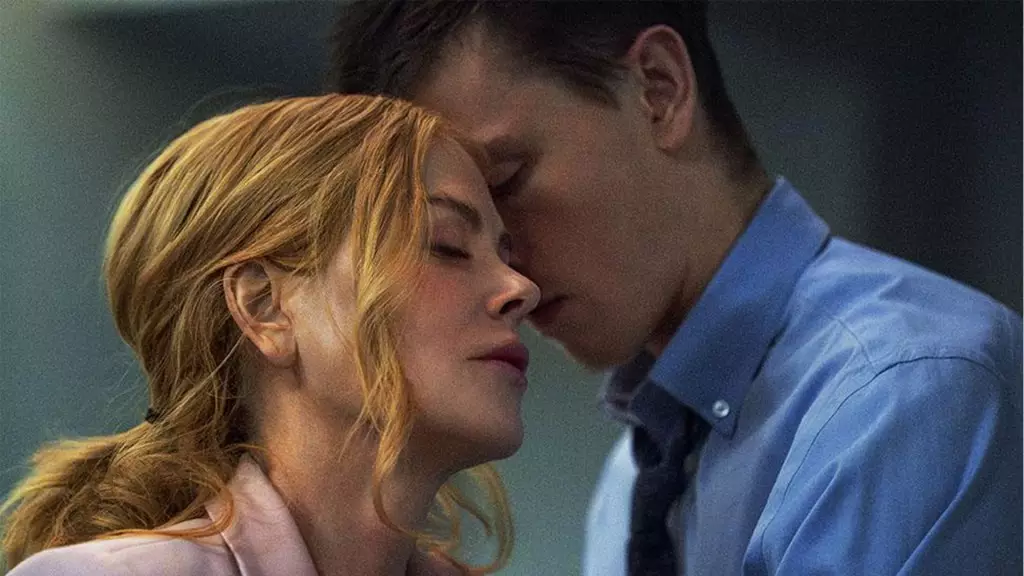The realm of erotic storytelling is replete with taboo subjects, daring images, and encounters that pulse with the energy of desire. Immersing herself into this world, Halina Reijn, a prolific writer and director, created a thought-provoking and seductive scene for her upcoming film, “Babygirl.” Rather than relying solely on the physical attributes of sexuality, Reijn emphasizes a more cerebral connection to desire in her creative process. In a recent interview with IndieWire, she revealed the inspiration behind a pivotal scene involving a glass of milk that conveys much more than mere libations; it symbolizes the complexities of attraction and instinctual magnetism.
Reijn’s creative inspiration draws heavily from personal experiences, blurring the lines between authenticity and artistry. The evocative scene recounts Samuel, portrayed by Harris Dickinson, sending a glass of milk to his boss, Romy, played by Nicole Kidman, prompting her to drink it. While this imagery might initially seem ludicrous or childish, it carries layered meanings. For Reijn, the glass of milk serves as an archetype of human sexuality—a conduit through which one can explore deeper desires, vulnerabilities, and power dynamics within relationships.
Her anecdote about a chance encounter with a younger actor underscores the essence of her vision. Missing out on the youth and spontaneity of her colleagues, she wanders into a bar, favoring simplicity over vice with her choice of a soft drink. However, the unexpected arrival of a glass of milk initiated an intimate psychological response, igniting a spark of attraction. Reijn reinforces a peculiar truth: that eroticism is often less about what happens physically and more about the cerebral intrigue it incites.
In dissecting the erotic elements of her narrative, Reijn astutely highlights that often the most compelling moments are born from suggestion rather than explicit representation. This notion that real sex is seldom just physical poignantly reframes how we perceive eroticism. “Real, shocking sex,” she says, “is about what is in the mind… it’s all suggestion.” This perspective stands in stark contrast to typical portrayals of sexuality in mainstream cinema, which frequently opts for the explicit and overt but misses the nuanced exploration of longing and desire.
In “Babygirl,” the interplay between Romy and Samuel exhumes the psychology of attraction, rather than a focus on unwavering carnal interactions. Reijn’s emphasis on symbolic acts—such as licking candy, crawling on a stained carpet, or the admonishing tone of “good girl”—establishes a provocative motif. Here lies the beauty of imagination; the tension crafted from power play, agency, and an intricate dance of the mind often ignites the flame of desire more effectively than physical encounters.
Reijn’s cinematic choices encapsulate a rarity in contemporary erotic narratives: a marriage of style with substance. “Babygirl,” cast against the backdrop of an A24 production, is not simply a high-powered workplace thriller; it becomes a commentary on the intricacies of relationships in an age preoccupied with superficial connections. Kidman’s character, Romy, portrays a woman who risks everything for passion, placing her in a precarious yet equally mesmerizing paradigm where ambition and desire coexist.
This aspect of her film resonates with audiences grappling with their own intersections of power, seduction, and the consequences of pursuing one’s base instincts. Moreover, Reijn’s willingness to expose her own vulnerabilities transforms the lens through which viewers engage with the content. Rather than offering only visual stimulation, “Babygirl” beckons the audience to reflect, unlock their imagination, and embrace the complexity of human connection.
Halina Reijn’s exploration of eroticism challenges the prevailing narratives that often dominate discussions about sexuality in art and film. By imbuing her scenes with personal reflections and psychological depth, she reaffirms that the essence of desire transcends physicality. Through imaginative storytelling and symbolic acts, she invites audiences to rediscover their own yearnings. “Babygirl” represents a fresh narrative endeavor in the cinematic portrayal of erotic experiences—one that celebrates the mind’s role in unraveling the intricacies of human sexuality. This blend of realism and audacity makes Reijn’s work not just erotic, but profoundly captivating.

